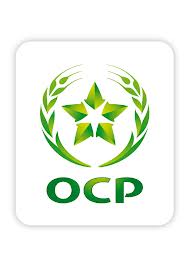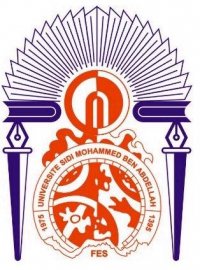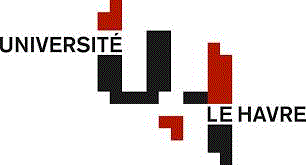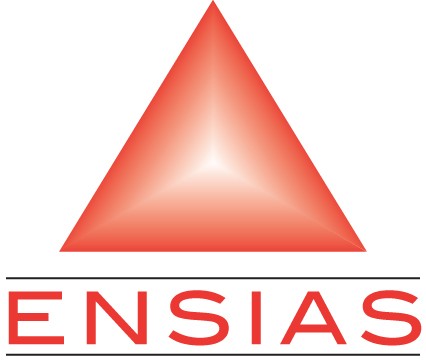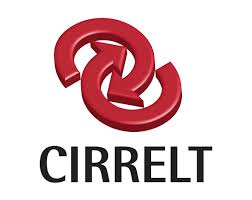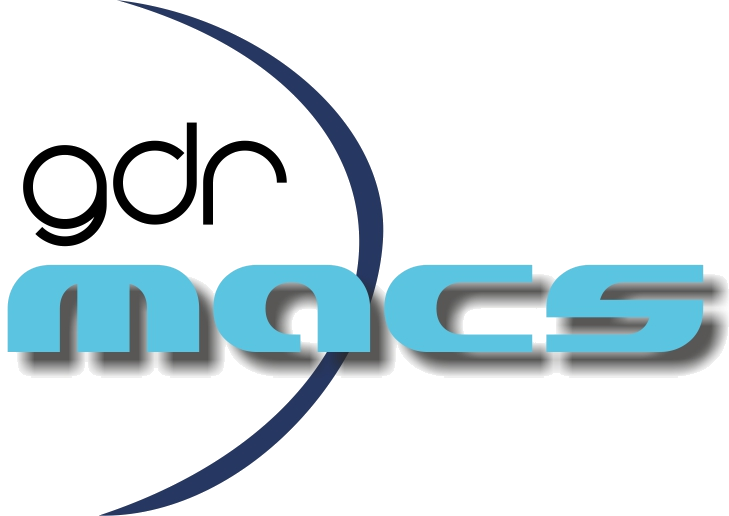|
|
| Home | Important Deadlines | Registration | Photo gallery | Workshops | Contact |
Official sponsor
Partners
|
Port Logistics & ShippingSession description Like a living organism, the port is a complex set of systems interconnected by numerous physical, financial and information flows, and, as with all systems there are significant changes that occur over time. Also, like a living organism, the port is impacted by many changes, such as, a new customer, a new demand, and resource failures. These changes may happen at different levels, strategic, tactical and operational. Papers sought for this session examine optimization, modeling, simulation and information system problems present throughout the port and shipping like:
Papers that report current research and development, present case studies or challenge the accepted norms, are all welcome. Track Chairs
Column generationSession description In colloquial terms, column generation is a way of beginning with a small, manageable part of a problem (specifically, a few of the variables), solving that part, analyzing that partial solution to discover the next part of the problem (specifically, one or more variables) to add to the model, and then resolving the enlarged model. Column generation repeats that process until it achieves a satisfactory solution to the whole of the problem. In formal terms, column generation is a way of solving a linear programming problem that adds columns (corresponding to constrained variables) during the pricing phase of the simplex method of solving the problem. In gross terms, generating a column in the primal simplex formulation of a linear programming problem corresponds to adding a constraint in its dual formulation. In the dual formulation of a given linear programming problem, you might think of column generation as a cutting plane method. In that context, many researchers have observed that column generation is a very powerful technique for solving a wide range of industrial problems to optimality or to near optimality. Ford and Fulkerson, for example, suggested column generation in the context of a multi-commodity network flow problem as early as 1958 in the journal of Management Science. By 1960, Dantzig and Wolfe had adapted it to linear programming problems with a decomposable structure. Gilmore and Gomory then demonstrated its effectiveness in a cutting stock problem. More recently, vehicle routing, crew scheduling, and other integer-constrained problems have motivated further research into column generation. Column generation rests on the fact that in the simplex method, the solver does not need access to all the variables of the problem simultaneously. In fact, a solver can begin work with only the basis (a particular subset of the constrained variables) and then use reduced cost to decide which other variables to access as needed. This session is dedicated to the development of the simplex method and its applications and in particular to the column generation. Track Chairs
Intermodal Freight Transportation: new trends and challengesSession description p>Intermodal freight transportation (used here interchangeably with multimodal freight transportation) involves combining multiple modes of transportation for the transport of the cargo from origin to destination. Intermodal transportation is often claimed to enable more efficient, reliable, flexible, and sustainable freight transportation. Even if this solution is increasingly applied in practice, many challenges and/or issues remain hard to deal with. These challenges limit further developments of intermodal freight transportation solutions, despite the commitment of many stakeholders. This session aims at providing an international forum to discuss new ideas and methods to better design, plan and control operations in the context of intermodal freight transportation. Presenting and discussing an up to date State of the Art is also welcomed. The contribution should highlight some opportunities and challenges related to the development of intermodal freight transportation. This invited session looks for contributions concerning but not limited to:
Healthcare logistic: innovative techniques for the present and the futureSession description The healthcare is a very special activity. It corresponds to production of a variable service in terms of quality and quantity. It requires a considerable adjustment. The hospital system can be described as a discrete event system (DES) whose dynamic depends on the interaction of discrete events with a high degree of competitiveness and parallelism. One of the system's challenges is to ensure an efficient system mastering different flows while also providing cost optimization opportunities. One of the contributors to hospital system is the logistic that has become integral to the continuous improvement of care organizations. The Integration of logistics' techniques permit to analyze the functioning, to fill the sizing problem and to improve efficiency of the healthcare system. Generally, logistics' techniques solve problems of resources performance, flow (drugs, patients,..) and tasks (operating theater, emergency, etc.). This topic concerns therefore: drug supply chains, blood supply chains, operating theaters, emergency services, pediatric services, Scheduling and routing ambulances, etc and this includes:
Sustainable management of the production shop floor addressing current ecological challenges: Ecodesign a lever for value creationSession description The current economic and environmental challenges require different types of business pressures. Indeed, they should improve their production capacity, providing quality products and have competitive prices, and while meeting consumer expectations in regard to respect for the environment. For each production system, it is then necessary to adopt a responsible production taking account of environmental protection as well as social responsibility criteria with respect to the company's employees and its stakeholders, for the overall operation of the company and all its products and services. In response, the organization must operate changes and propose new ways of producing, as well as new products and services more environmentally friendly. The approach is a critical issue for current companies, which enroll sustainable development at the heart of their strategies. While business practices for sustainable development are multiplying, innovation seems to be a must-see for progress in integrating the environment in economic activity. Eco-design, immobilizes this integration, while providing a practical tool which involves taking into account environmental aspects throughout the product life cycle from design to disposal layout. So how immobilize this preventive approach to enable sustainable management of production shop floor addressing current ecological challenges? With a tendency to adopt a green approach in production shop floor, the objective of the session is to:
The green economy and sustainable water managementSession description Whereas previously in most sectors, strategic decisions were made with a cost-cutting concern and improving the level of service, now they adopted a green approach by taking into account the reduction of waste and pollution. If green logistics is a commonly used concept, it is not just a fad but his interest reflects awareness in the need for an ecological and more sustainable logistics. Its purpose is to allow economy of resources (material and energy), reduce waste emissions, and respect the environment while remaining competitive. The green economy is a topical concept which has gradually become the heart of sustainable development, including in the world of water. It concerns a development vision of more sober companies of energy and natural resources more efficient but also more conscious of human and social aspects. This economy adopts consumption and production more environmentally friendly while reducing poverty. The vital issue of water is paramount, with the urgent need to conserve and recycle natural resources and raw materials, to achieve a true energy change and succeed the ecological transition, through integrated management, balanced and sustainable quantitative and qualitative, of surface or underground water resources. On a conceptual level, sustainable water management can be designed and implemented by taking into account other areas of life and the economy. So what decision-making tools for a green economy in the world of water? In the context of a green economy, the purpose of the session is to:
High-Performance Computing in Logistics TransportationSession description Session description We solicit submissions of original manuscripts in transport modelling applications using High-Performance Computing (HPC). The use of new approaches in parallel computing like GPU computing and peer to peer computing will be considered in priority. Applications to planning, logistics, manufacturing, optimization methods and tools for their efficiency on different parallel systems will be considered. Track Chairs
Theoretical advances and applications in Healthcare Supply Chain ManagementSession description Healthcare supply chain management involves designing, planning and operating decisions to deliver healthcare services meeting patients' needs and priorities. These decisions call upon a plethora of frameworks and tools to render the healthcare logistical systems robust in the presence of many sources of uncertainty and several conflicting objectives (medical, social, cultural, economics and risks). This requires structuring, modelling and solving different classes of complex real world problems as applied to healthcare systems (strategic planning, forecasting, pharmaceutical products' segmentation, demand management, pricing and revenue management, risk management, inventory management, transportation, network design, and reverse logistics). In emerging countries, managing healthcare supply chains is more challenging due to additional constraints. It remains, however, necessary to improve them to give patients access to responsive and more affordable health care services. This session aims to present theoretical advances and applications of Supply Chain Management tools to tackle healthcare supply chain problems. This session welcomes contributions from all areas in Healthcare SCM. The topics include, but are not limited to:
Urban travel policies and freight transportationSession description Urban logistics covers all activities involved in freight transportation in the city. It is defined as the art of delivering under the best conditions flows of goods that enter, exit and circulate in the city. The analysis of urban logistics is extremely complex because it includes multiple and diverse components and generates safety problems, road sharing, congestion, noise or pollution. This session aims to present an overview of progress in terms of improvement factors of urban logistics confronted with congestion and environmental friendliness. This session welcomes contributions from the following topics:
Towards a sustainable and competitive logisticsSession description Logistics extends along the value chain in which is role is consisting in making two poles of economy by synchronizing efficiently in the best economic conditions the supply chain with the real consumers demand. It is aligned to the company's strategy and is well coordinated and integrated to deal with the complexity, uncertainty and fluctuation. According to Christopher (2005), it allows to process "better, faster, cheaper and closer" to gain competitive advantages. This alluring vision is difficult to achieve. It requires a gradual approach and depends particularly on the ability of firms in modernizing their working methods, integrating logistics processes, reducing costs and delays, measuring performance and automating information exchange. The integration of sustainable development leads to the emergence of two new dimensions; a social one and environmental one. These latters are added to the economic challenges faced by supply chain managers who still lack a competitive logistics especially as they need to include new environmental and social requirements especially in small and medium enterprises. Generally, the three axes of economy, society and environment are not opposites and are possible to reconcile though this claim need to be demonstrated. Various initiatives for logistics oriented towards sustainable development requirements are taken. For example, in the consumer goods sector, the Global Commerce Initiative (GCI) identified key changes required for the future supply chain. This session suggests exchanges on various vital issues such as competitiveness, sustainability and logistics in order to discuss the possibility for companies to adopt a competitive logistics and to take into account the constraints of sustainable development. The purpose of this session is to address on the two following areas :
Exact or heuristic methods for solving full truckload vehicle routing problemsSession description This session is dedicated to vehicle routing problems truckload (Full Truck Load VRP). This problem category is characterized by the fact that each vehicle can use only one application at a time, the delivery must be completed before the next collection. The classic problem is enriched by specific practical constraints. In particular, the company can serve its customers using a fleet of identical or heterogeneous vehicles, from one or more depots; customers require time windows for pickup and delivery; etc. This session aims to bring new trends to address these vehicle routing problems by full load, in terms of modeling and/or resolution methods, for both exact and heuristics methods. The contributions based on real applications case studies are encouraged. Applications related to this session are the following (not exhaustive):
Supply Chain OptimizationSession description TSupply chains can be considered as a network of organization, which creates value for final customer. Management of this complex networks focuses on coordination of independent dispersed members of these networks. This special session focuses on the problem of supply chain networks coordination with new approaches and methods based on operations research, artificial intelligence and advanced computing techniques for design of production systems, supply and inventory management, production planning and scheduling, transportation, logistics, healthcare, military and simulation in supply flow optimization. Topics of interest include, but not limited to:
Modelisation and mathematic analysis of certain questions of energy or economySession description A certain number of mathematic questions in relation to stability of energy or economy systems passes by the optimation of certain functionals or functions. The analysis of these questions depends on the system nature, as well as the choices of certain data and hypothesis of study. This session is opened:
|
|
The 3rd IEEE International Conference on Logistics Operations Management - 2016
|
